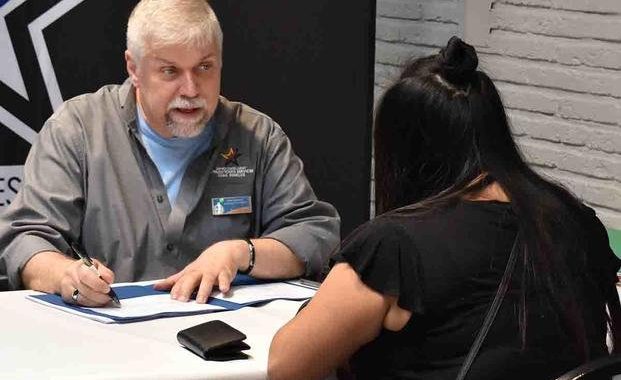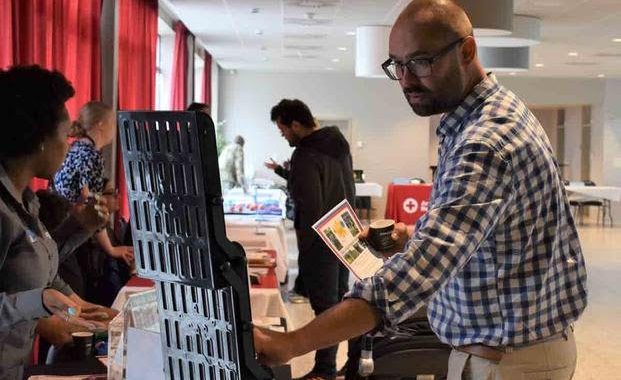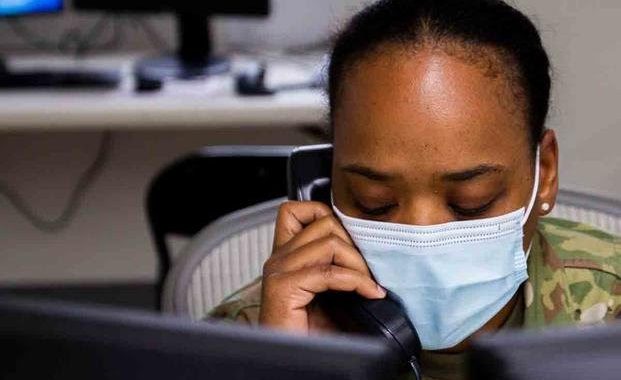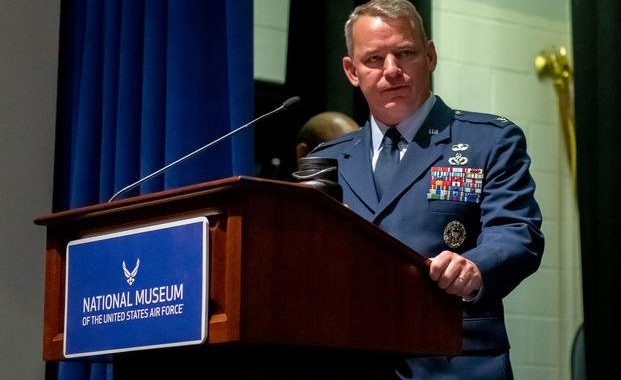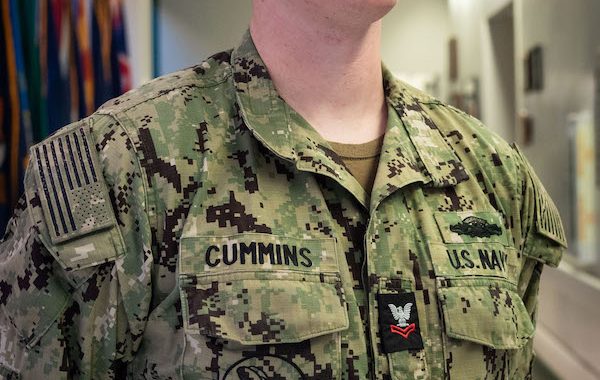Air Guard Education Center: A Look Back at 2019
9 min read
LOUISVILLE, TN, UNITED STATES
Story by Master Sgt. Mike Smith
Air National Guard Training and Education Center/TV
MCGHEE TYSON AIR NATIONAL GUARD BASE, Tenn. — The Air National Guard’s I.G. Brown Training and Education Center met challenges and changes during 2019. It’s Airmen spent the year educating thousands in their classrooms, developing and reorganizing for the future, and traveling and broadcasting at units across the nation.
As the year was drawing down, TEC staff and faculty considered their accomplishments for the past 12 months and the challenges in the next.
TEC opened the year by launching its USAF Connect app at the App Store and Google Play. The app offered course information, campus resources, videos, and news to user’s mobile devices. The center also launched a LinkedIn account in June as a means for Airmen to list their TEC assignments and courses on their account profiles.
January hit a high note from TEC earning the Air Force Organizational Excellence Award. It was the center’s 11th award since 1968, and the Director of the Air National Guard, Lt. Gen. L. Scott Rice, commented online, pointing out the superior performance as well as calling staff and faculty high-caliber and hard-charging Airmen. Other notable awards included the broadcasters. The ANG Prevention Action Group’s Tech. Sgt. John Young placed in the National Guard Bureau media contest, including awards for digital art, videography, and multimedia. The Professional Continuing Education Division earned a team videography award. Two Airmen, Tech. Sgt. Grace Mayor and Master Sgt. Megan Francolini, earned distinction from the Air National Guard Readiness Center among their chosen Airmen of the Quarter and Airmen of the Year.
Instructional developers traveled on 10 trips to units across the nation to teach professional development courses to 1,453 Airmen. An additional six units and 620 Airmen came to the campus for those classes, on topics including management, leadership, and public speaking, among others. The team also managed six Instructor Certification Program classes for 93 students and 147 students in the online bullet writing course.
Production team broadcasters developed 14 videos for ANG and TEC readiness and command information. The ANG Prevention, Education, and Outreach team developed 10 videos to include vital focuses on mental health, CBT policy, and prescription drug awareness.
Two live town hall broadcasts by the Air National Guard’s Command Chief, Chief Master Sgt. Ron Anderson, as well as command information sent via satellite, kept the broadcasters and studio engineers active and innovative. Tens of thousands of family members and friends watched their loved one’s enlisted professional military education graduations on live-streamed broadcasts at TEC’s Facebook page. There were more than 60 live broadcasts from the campus, including those on the Warrior Network.
The broadcast team, engineers, and their equipment also went on the road in support of the 300-plus Senior Leadership Conference in Wisconsin, the 400-plus Enlisted Leadership Symposium in West Virginia, and the 200-plus National Guard Bureau Diversity Workshop in Arkansas.
By the fall, the Professional Continuing Education Division announced its restructure that included its new name as TEC University. Officials said that the efforts would improve the interaction between the production, instructional development, and transmission branches as well as redirect the division toward an online learning management system, among other work, to modernize and innovate for the field.
The Chief Master Sergeant Paul H. Lankford Enlisted PME Center reported 2,156 graduates for the fiscal year. They hosted instructors from other academies and welcomed international students. The 15 NCO academy and Airman leadership school classes volunteered 5,909 hours in the Knoxville-area community and gave 513 units of blood at 10 blood drives.
TEC hosted the first National Guard Bureau State Partnership Program workshop held at a National Guard education center. Later, more than 200 Air Force First Sergeants were on site for a symposium. Other large groups using the campus were human resource advisors, public affairs, web site managers, information security managers, sexual assault response coordinators, the Civil Air Patrol, and force development managers.
All sorts of happenings outside the campus brought Airmen together for camaraderie. Airmen and spouses took part in a Strong Bonds weekend in February to learn relationship skills. The team began Freedom Friday runs in April that carried the flag across the base in early-morning workouts. Softball players took on units from across the nation in the ANG softball tournament in Chattanooga, and TEC’s softball team played on the Knoxville adult league for a dozen games at Caswell Park. Staff and faculty supported each other in events, to include bodybuilding competitions, roller derby, and veteran’s support, among other gatherings and volunteerism.
Construction started on TEC’s new billeting office. The $1.39 million building project on the eastern edge of the campus slowly, but steadily, showed visible progress with brick-work on the outer walls stacking up before winter’s arrival. The new sand volleyball court opened next to the running track.
A change in leadership also occurred when Col. Kenneth Lozano succeeded Col. Kerry Lovey as the 15th commander on May 31.
The new commander soon challenged faculty and staff to align TEC for the future. The results were the new mission and vision statements, strategic planning, and an ongoing improvement process.
By mid-December, Colonel Lozano took a moment to answer a few questions about TEC in an interview.
Q: How has your time as commander been?
A: You rarely see an opportunity like this, where you are serving the total force. With that, there’s a level of responsibility beyond being a commander on the day-to-day. It involves public speaking, it involves distinguished visitors, and it involves what we are trying to gear this organization towards, a diverse mission-set in training and education for different MAJCOMs… at all levels.
Q: You have spent the summer leading TEC through an improvement process. What has been your impression so far?
A: Improving an organization is a challenge that every commander should have; otherwise, it seems like you are just keeping the lights on. Finding what needs to be improved, without trying to make changes just-to-change, is the real challenge. My question to the staff when I got to TEC was, ‘who are we?’” Not, what is our name. In improving the organization, it was to redefine who we are, so then we can start thinking critically into who we want to be. So the first exercise in improving the organization was rooted in coming together and redefining what our Mission is. Let’s go back to 1968 when this training and education center was founded. What was the original design? And it’s that Mission, still valid today, which is To Train and Educate Today’s Airmen for Tomorrow’s Fight. It’s simple, it’s foundational, but it’s our core. Once we, through an inclusive process, defined that – who we want to become, how we want to improve in that capacity of training and education – we can improve whatever is it that we are doing today as it relates to our Mission and the way we define it. That is how we came up with our Vision Statement: To Be the Most Agile, Innovative, and Resilient Total Force Training and Education Provider. We have been very successful in creating the foundation for a multi-year strategy, which begins with re-shaping, redefining who we are, so we can then look forward to who we want to be; based on our three values of respect, trust, and engagement. Now we are working toward priorities and the lines of effort, which is going to start putting out what are the centers of gravity, what are the things that we need to put more emphasis on, what are the type of things that we need to continue doing, and what are the initiatives to integrate into our lines of effort. Then we can then drive our priorities and get closer to who we want to become.
Q: There are testimonies to how well TEC’s current staff and faculty gel and serve together. Did they work toward this, or is this just a lucky time to be assigned?
A: TEC, before I got here, was a great place to be, and I sensed that since day one – the atmosphere, the attitudes, the quality of work signaled to me that it was a great place to work. So going back to your first question, how can we improve upon that? We are ensuring that we optimize each other’s potential, in every opportunity, as well. We need to be very aware of each other and look for opportunities to continue growing as individuals, growing as a team, and growing as an organization. I have been very deliberate in emphasizing our values as an organization, and one of the things that we do at the behavioral level that can become a habit is creating a culture of respect and trust to generate engagement. When we get that level of engagement, we become better as individuals, we become better as teams of teams, and that’s how we grow as an organization. When we get new members coming to an organization that is already performing on that high, it gets contagious. Everybody brings their A-game, every day, without feeling judged, without feelings of competition or wanting to be better than anybody, but more a sense of commitment to the organization. So that’s what I’ve focused on.
Q: TEC seemed to steer away from substantial workshop support to consider more lasting education missions and customers. Can we expect to see new collaborations in 2020?
A: Absolutely! We enjoy the benefit of having excellent facilities here – they are state-of-the-art, with high technology, dormitory proximity with an award-winning dining facility, everything within walking distance. The campus makes TEC very appealing to those looking to use our facilities to do events that promote their training and education. But we are trying to move towards increasing readiness for the total force, through TEC, not TEC being the supporter of organizations improving their training and education, which adds limited value. Still, the shift is going to have a more significant impact at the total-force level. With that said, there will be room and perhaps limited opportunities for people to come and use TEC for their specific events. We will pursue occupying our facilities to execute and enhance a TEC mission that expands beyond our current portfolio, which has traditionally been enlisted PME. In 2020, we are expanding to new collaborations with other MAJCOMS beside Air Education and Training Command, and exploring training that drives readiness by increasing the role of TEC in impacting the total force.
Q: You have spoken at the EPME Center graduations through the summer. What was it like compared to your past senior leadership talks?
A: I have the distinct privilege to address Airmen as a whole during their time attending any training at the TEC campus. I get to interact here and impact and influence the thoughts and the attitudes of thousands of Airmen from across the total force. That is a unique privilege, which comes with the position that I am honored as TEC’s commander. Every single opportunity is a different experience – it is a learning process throughout, because of the message that I try to convey. I try to make a lasting impact based on characteristics of the situation at the time and the characteristics of the students themselves. Compared to what I have spoken in the past, which is delivering what I want to say, I feel this allows me to inspire people who come here for development; and how my contribution can be made as an add on. It’s not for me to tell them how they should act or behave, but instead, I want to leave them with a story, with a message, and with something they can reflect on of their time here. It’s my way to pay it forward and to say, ‘Hey, I’ve been in situations that you may face in the future, I wish I would have had someone to tell me something that could inspire me so that I can be, perhaps, better equipped, or that preempts a problem faced in the future. I try to be as personal as possible to tell them the value of the education they get and not to let training and education be a line in their resume – this is their time to reflect on and value their new knowledge. They owe that to themselves, and they owe that to the Air Force and the Airmen that now expect them to be better equipped.
Q: Why should we be excited about TEC’s year ahead?
A: We are incredibly blessed having each other, and we are very excited about having each other in 2020. Taking care of team TEC and taking care of each other is our number one, absolute, top priority. The sheer fact that we are closing 2019 strong, we are very optimistic about all of the challenges. We are just very excited to face them together. It is overwhelming how much people here love doing what they do, and that’s what I call passion and having a passionate team. And that starts at the top.


